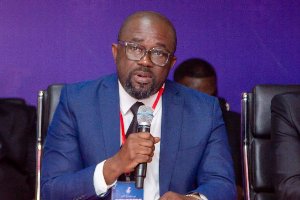Tema, July 22, GNA - A former Director General of the Ghana Education Service (GES) has said it was important for the public to be sensitized on the importance of education to enable them contribute to quality education.
Rev (Mrs) Ama Afo-Blay said knowledge about the importance of education would encourage the less educated ones, especially mothers, to place priority on it and invest in their children's education by willingly sending them to school and providing their basic needs. She was contributing to a discussion on quality education at the just ended Civil Society Forum on the critical role of women in the attainment of the Millennium Development Goals (MDG). It was organized by the Voices of African Mothers (VAM) in collaboration with the MDG Global Watch for selected women's groups, students, queen mothers and individuals. In attendance was a delegation from Suriname including the First Lady, Mrs Liesbeth Venetiaan-Vanenburg.
Her contribution followed an intervention by a participant that most students in the rural areas ended their education at the Junior High School level no matter the performance in the Basic Education Certificate Examination (BECE).
Rev. Mrs Afo-Blay said unless the mother is convinced about the importance of education, the battle about quality education would not be achieved.
Touching on the plight of pupils with defects, she suggested that they should be subjected to thorough screening and be grouped for special attention. Rev. Mrs Afo-Blay expressed the readiness of retired educationists to contribute towards successful quality education in the country if invited.
Mrs Diana Esi Mantey, a Deputy Director at the GES, said education is a shared responsibility of parents, teachers and the community and called on each of them to play vital role to achieve the desired results.
She said communities must also provide infrastructure like libraries and accommodation for teachers. On complains about the absence of libraries in some rural areas, Mrs Faustina Boakye, Gender and Development Manager of World Vision International (Ghana) suggested the mobile system of library where books are kept in boxes for use by pupils and students and later transfer them to other schools.
She said the WVI adopted the system in their catchments areas leading to improvement in the reading by the pupils rather than waiting for libraries to be constructed which takes longer time. Some of the female student participants complained about uncongenial conditions in homes and communities which affect their learning and appealed for the construction of more libraries in the communities for the unfortunate students.
General News of Wednesday, 22 July 2009
Source: GNA












